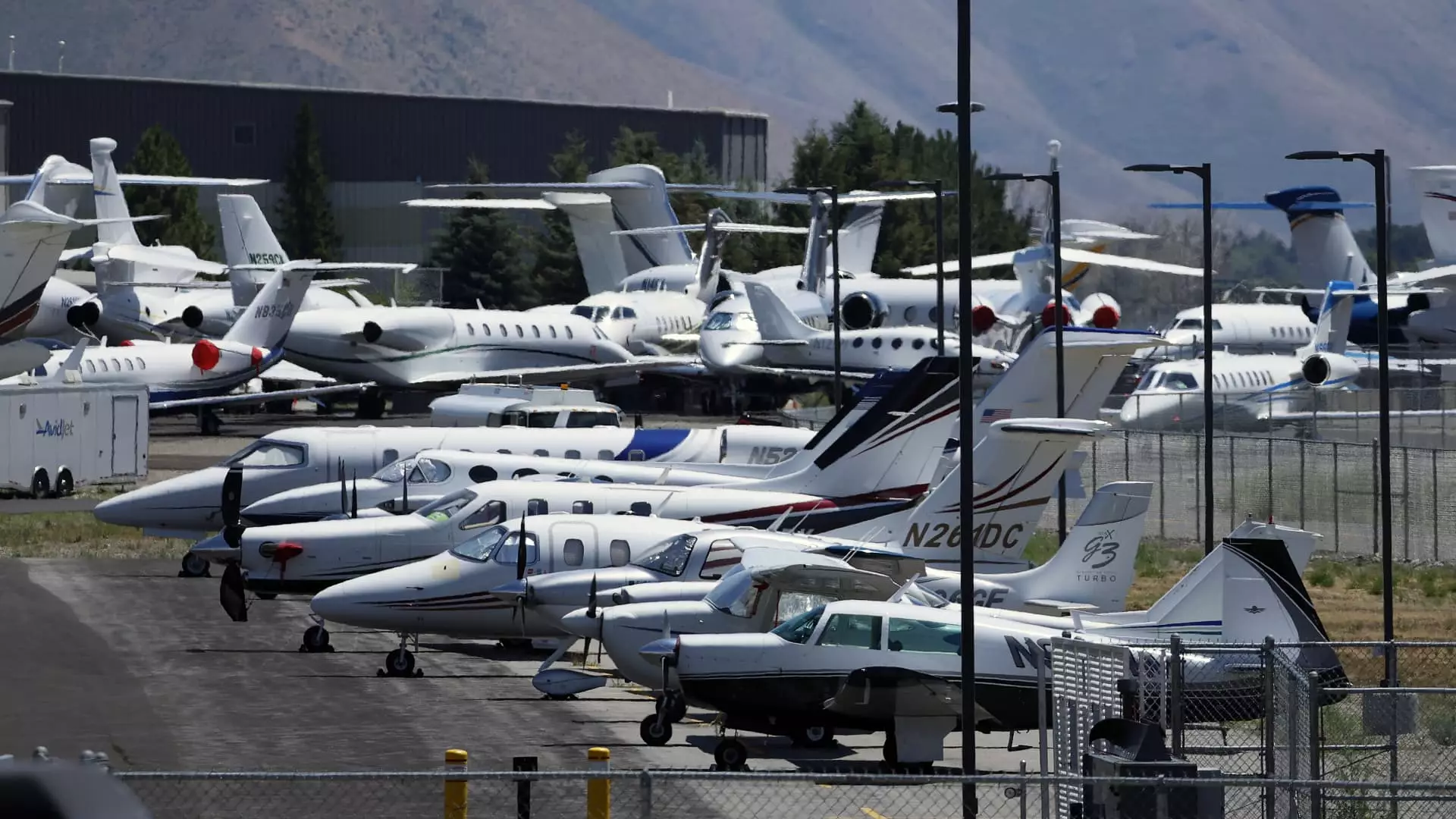Recent legislative changes designed to stimulate the economy are often portrayed as straightforward benefits for business owners and the broader public. However, the new federal spending bill, with its reinstatement of “bonus depreciation” for private jets, exposes a darker truth about how fiscal policies can deepen economic inequality. While proponents argue that such incentives boost business activity and create jobs, the reality is that they disproportionately favor the ultra-wealthy, who have the means to take advantage of these loopholes in ways that hardly benefit society at large. The rapid resurgence of private jet sales, driven by an immediate write-off opportunity, illustrates how policy manipulations serve selectively, reinforcing class stratification under the guise of economic revitalization.
Much of this tax benefit—allowing owners to fully deduct the cost of a business jet in the first year—is a boon primarily for the already privileged. It incentivizes the acquisition of high-cost assets that most workers or small businesses could never afford, effectively channeling public resources into the pockets of the affluent. Instead of fostering broad-based economic growth, this policy perpetuates a cycle where wealth accumulates at the top while the middle and lower classes bear the tax burden and the societal costs that come with unchecked inequality.
The Mirage of Economic Growth Through Luxury Spending
The private jet industry, which experienced an explosion of growth during the COVID-19 pandemic, is now facing a sobering reality. Many of those who rushed to buy planes during the initial boom are now grappling with mounting maintenance, pilot, and operational costs—expenses that often outpace initial expectations. As inventories flood the market, the so-called “luxury economy” reveals its fragile underpinnings. The rise in pre-owned jets for sale, coupled with longer sales periods, underscores a sobering truth: the pandemic-era surge was driven not solely by genuine business needs but also by a desire to showcase wealth and status through material possessions.
This phenomenon underscores how economic data can be manipulated or misinterpreted. The appearance of growth in the luxury sector—private jets, yachts, designer goods—is often exaggerated, masking underlying financial instability among wealthy elites. Rather than serving as indicators of a thriving economy, these signals often reflect a skewed distribution of wealth where financial health is concentrated among a tiny fraction of the population.
Strategic Buying and Timing as a Reflection of Inequality
As brokers and advisers suggest accelerated purchasing before the looming tax deadlines, it becomes clear that much of this activity is less about genuine need and more about strategic financial planning. The recommendation to buy before September and sell afterward epitomizes how the ultra-rich exploit policy timelines to maximize their gains. This behavior—timing transactions to optimize tax benefits—further accentuates the disparity. The majority of Americans, working paycheck to paycheck, lack the luxury of such strategic financial moves.
This strategic behavior not only reinforces wealth inequality but also perpetuates a system where the tax code becomes a playground for the affluent while the rest are left footing the bill. Such policies and market behaviors contribute covertly to widening gaps in income and opportunity, eroding social cohesion and justice.
The True Cost of Externalized Prosperity
While the glossy images of private jet ownership project an aura of success, the hidden costs are stark. The environmental impact of luxury aviation is substantial, contributing heavily to carbon emissions and resource depletion. For a society grappling with climate change—arguably the defining issue of our time—these policies and behaviors seem morally indefensible. Yet, they persist because political and economic systems continue to prioritize the interests of the wealthy over collective sustainability.
By focusing on schemes that turbocharge asset accumulation among the rich, governments inadvertently entrench social divides. The narrative that tax incentives are necessary for economic growth becomes a justification for policies that favor the few, at the expense of the many. It’s a cycle where wealth consolidates not through fair opportunity or innovation but through strategic manipulation of laws crafted to serve the elite.
In essence, these fiscal policies, while cloaked in the language of economic recovery, often serve to exacerbate inequality and distort the true state of our collective prosperity.

